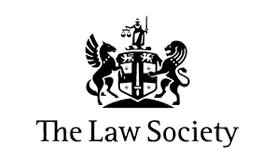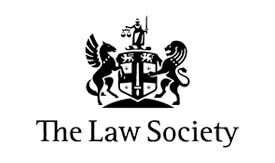Just like with the .com bubble, new and revolutionary technology has given rise to a lot of financial opportunities for early investors. And with new technology, there is little regulation. And where there is little regulation, fraudsters find opportunity too.
The crypto-markets have garnered notoriety for its laissez-faire economy, with many awarding it the nickname of a “wild, wild, West” of frauds and scams. Although cryptocurrencies are a lot more regulated now than they were last decade, it is still considered a relatively unregulated market, especially for financial instruments.
The Unfortunate Case Of Tulip Trading Ltd
Tulip Trading Ltd (TTL), a Seychelles incorporated company owned and controlled by Dr Craig Wright, fell victim to a hacker attack on Dr Wright’s personal company. This resulted in the private keys required to access the account having been stolen and deleted from Dr Wright’s computer. The bitcoin sum, alleged to have been valued at approximately £3 billion at the time, were actually not stolen. However, without the private keys Tulip Trading Ltd could not access the account anymore, and thus the funds were stuck in limbo.
TTL did not pursue remedies against the hackers, but rather argued that the entities of the four digital asset networks having control of the blockchain ecosystem (BSV, BTC, BCH, and BCH ABC) owe it a fiduciary and/or tortious duty, and thus they should assist TTL in regaining control of its wallet. TTL’s argument is that it would not be technically difficult for the four asset networks to write and implement a software patch enabling TTL to regain control of its assets.
Tulip Trading Ltd Vs Bitcoin Association BSV And Others
The Chancery Division of the High Court rejected TTL’s claim that the defendants owe TTL a fiduciary duty. The Court stated that TTL cannot realistically be described as entrusting their property to a fluctuating, and unidentified, body of developers of the software, at least not in the sense and to the extent claimed by TTL. While fiduciaries can be under positive duties (i.e. to do something, rather than NOT do something), what was being sought by TTL went beyond the nature of the obligations normally imposed on fiduciaries.
Furthermore, the court also rejected that TTL was owed a tortious duty of care to take positive action by implementing the software patch TTL requested, as there is no general duty to protect others from harm (Smith v Littlewoods [1987], Sheppard v Glossop Corporation [1921]). Furthermore, the law imposes no duty of care to prevent third parties causing loss or damage, or for injury or damage caused by a third party (Michael v Chief Constable of South Wales Police [2015]). Although there are some circumstances where an extension to the law applies, the court refused to accept TTL’s argument that this case is an incremental extension of the law.
Court Of Appeal
The saga did not stop at the High Court. Lady Justice Falk allowed the appeal, stating that “The issue as to whether developers owe duties of care and/or fiduciary duties to the owners of digital assets and if so, what is the nature and scope of those duties is one of considerable importance and is rightly characterised as a matter of some complexity and difficulty. Given that in addition to its complexity and difficulty the underlying facts will play a significant role in determining that issue, it is arguable with a real prospect of success that it is not susceptible of summary determination in the context of a challenge to the jurisdiction, and therefore that the judge fell into error in deciding that there was not even a serious issue to be tried and in the approach she adopted”.
A decision is not yet expected until early this year.
Conclusion
The crypto-markets have lived up to its name of being a wild, wild, West. Due to the lack of regulation and high emphasis on anonymity (and just like the worldwide web was in its early days), fraudsters and hackers have flooded this ecosystem in search of vulnerable investors and cryptocurrency holders. Unfortunately, Tulip Trading Ltd was one of them.
The High Court’s decision appears to uphold the general tort law principles on duty of care and fiduciary duties. Those principles were formed through case law over a century, and it cannot reasonably be expected to take into account novel situations like TTL’s. Unless the Court of Appeal overturns the High Court’s decision, investors should have little hope of holding the digital asset networks accountable for the financial losses they suffer from malicious hack attacks.
It is therefore evident that in the absence of a proper regulatory framework which ensures a certain degree of transparency on the blockchain, as well as regulations setting out specific obligations on digital asset networks, that the crypto-markets will continue to be a hotbed for financial scams and hacker attacks. Unlike entities regulated by the FCA, PRA and SRA, crypto service providers and networks currently have no positive duties to co-operate and assist in combating fraud and hacker attacks.
Specialist Cryptocurrency & Blockchain Advice
Monarch Solicitors specialist Cryptocurrency Solicitors provide a tailor-made approach to your needs and can help with a range of crypto-related issues. Please contact us by either calling 0330 127 8888 or emailing enquiries@monarchsolicitors.com for an initial consultation.










